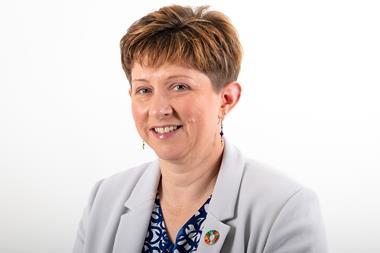Brunel Pension Partnership has set out how it has used artificial intelligence to improve its stewardship function.
According to its 2023 responsible investment and stewardship outcomes report, the £35bn pension asset pooling company has used an AI-driven tool to analyse and compare the voting guidelines of around 20 asset managers and owners.
“The insights gained from this analysis were instrumental in updating our own voting guidelines, and ensuring they are ahead of current practices and expectations,” said Oliver Wright, responsible investment officer, in a Q&A in the report.
“It’s about more than just tracking changes; it’s about understanding the broader shifts in stewardship standards and ensuring our guidelines reflect these.”
Brunel has also developed a tool that uses AI to assess implementation of its voting guidelines, which it has used to engage with its service provider where discrepancies were spotted.
“Given the importance of voting implementation, the ability to automatically verify this information has been invaluable,” Wright explained. “It ensures the reliability of our reports and significantly reduces the time and effort previously required for manual checks.”
“This means that we can devote more resources to engaging with investee companies and other core stewardship activities,” he added.
The amount of resources supporting stewardship resources in the investment industry has slowly been becoming a bit of a theme. In a report commissioned by the Principles for Responsible Investment, the Thinking Ahead Institute recently called for the investment industry to double its stewardship resources, and the former chief sustainability officer of Anglo-Dutch investment house Cardano has said pension schemes are not paying enough towards stewardship programmes.
Brunel’s Wright also set out the pool’s awareness that although AI brought substantial benefits, there were risks to be cautious of, such as the potential for social bias in AI algorithms.
Nature, biodiversity focus clarified
Brunel also flagged that it had refined how it presented two of its responsible investment priority themes, saying that it had “refreshed the language to clarify our focus on nature as well as biodiversity” and had more explicitly signposted its consideration of AI under cyber security.
Faith Ward, chief responsible investment officer at Brunel, said the primary purpose of the report was “to provide assurance to our partnership funds and their beneficiaries that we are fulfilling our fiduciary obligations through exercising the highest standard of stewardship across all RI themes – themes that are themselves firmly linked to the key systemic risks facing investors”.
Brunel made biodiversity a distinct responsible investment priority area in 2022, but said that it had last year expanded this theme to “explicitly call out our focus on nature”. However, it said that the pool continued to be guided by its 2022 high-level biodiversity strategy focused on capacity building.
Going forward it said it planned to progress engagement dialogues on biodiversity strategies and implementation, and to urge companies to consider the nexus between biodiversity and physical climate risk and report on their response with greater clarity.
It also said it planned to work with EOS at Federated Hermes, its asset managers and peers “to ensure biodiversity and nature, more broadly remains a priority for policymakers”.
Lastly, Brunel wants to make headway on data integration and assessment so it can advance its own reporting against the Task Force on Nature-related Financial Disclosures (TNFD). Brunel has committed to being an early adopter of TNFD reporting, which it aims to deliver by 2026.
It has so far completed a pilot project with S&P Sustainable1 on nature-risk profiling of the pool’s aggregated listed portfolios, and the next steps are to map various nature impacts and dependencies.
AI and cyber security
Brunel pointed out that cyber security continues to feature as a top risk under the World Economic Forum’s Global risks report 2024 in the short and longer term and that with the advent of a vast range of AI tools, cyber criminals can also now be more targeted and precise.
“In this evolving threat landscape, there are greater pressures on companies to raise their game to tackle cyber challenges,” it said, adding that the fast pace of technological advancement in AI contrasted starkly with progress of regulatory frameworks.
Brunel collaborates with Royal London Asset Management (RLAM) on a cyber security initiative. In 2023, Royal London Asset Management worked with several of their clients and other asset owners to review and update a set of investor expectations on cyber security.
Going forward, Brunel said it will continue to participate in the cybersecurity coalition led by Royal London Asset Management and continue to engage with asset managers on cyber issues, on how they monitor and integrate risks within investment selection and monitoring and within their own operations.
Read the digital edition of IPE’s latest magazine




























